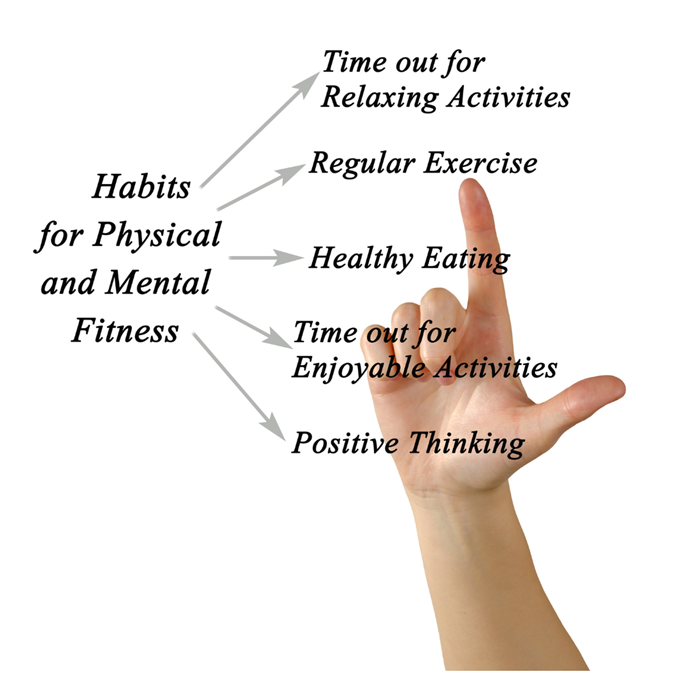Do you also struggle to maintain a healthy weight despite numerous attempts to shed those extra pounds? Look no further! This comprehensive guide will delve into the transformative power of behavioural changes for weight control. Discover effective strategies and practical tips to cultivate sustainable lifestyle habits that promote weight management and support your long-term goals.
At a time when fad diets and quick-fix solutions dominate the weight loss industry, focusing on behavioural changes for weight control is the key to achieving lasting success. Rather than resorting to temporary fixes, adopting sustainable habits can empower you to take charge of your health and well-being. Weight management is not just about following a strict diet or exercising vigorously for a short period. It encompasses a holistic approach that involves making deliberate choices, altering behaviours, and developing a positive mindset towards health and fitness. Understanding and implementing behavioural changes can create a personalized weight management program that suits your lifestyle and goals.

This article explores a wide range of effective strategies to help you make lasting behavioral changes for weight control. From exercise and nutrition to stress management and sleep hygiene, we will cover essential aspects contributing to a healthier lifestyle. These strategies have been proven to yield sustainable results and are backed by scientific research.
Are you ready to unlock the secrets to long-lasting weight control? Let’s dive in and empower ourselves with the knowledge and tools necessary for a healthier and happier lifestyle.
Exploring the Connection between Behavior and Weight Management:

Behavioural changes significantly impact weight loss because our habits and behaviours directly influence our food choices, activity levels, and overall lifestyle. By addressing these behaviours, individuals can break free from unhealthy patterns and establish new, healthier routines.
For example, mindless eating and emotional eating are common behaviours that can contribute to weight gain. Mindless eating refers to consuming food without attention to portion sizes or the body’s hunger cues. Emotional eating, on the other hand, involves using food to cope with emotional stress or discomfort. By recognizing and addressing these behaviours, individuals can develop mindful eating habits and find alternative coping mechanisms for emotional well-being.
Understanding the Role of Habits in Achieving Sustainable Weight Control:

Habits are crucial in weight management as they shape our daily routines and choices. Individuals can create a solid foundation for sustainable weight control by focusing on changing habits.
Research suggests it takes approximately 66 days for a behaviour to become a habit. This means consistently practising healthy behaviours over an extended period can lead to long-lasting changes. For example, incorporating regular physical activity into your daily routine, like going for a walk after dinner or using the stairs instead of the elevator, can gradually become an ingrained habit that supports weight management.
Additionally, establishing healthy eating habits is essential for sustainable weight control. This includes consuming a balanced diet of fruits, vegetables, lean proteins, and whole grains. Individuals can develop sustainable eating habits contributing to weight loss and maintenance by consciously making healthier food choices and practising portion control.
By recognizing the impact of behaviour on weight management and understanding the role of habits in achieving sustainable weight control, individuals can take proactive steps towards making positive lifestyle changes. Implementing behavioural changes that address eating patterns, activity levels, and emotional well-being can lead to significant and lasting weight loss results.
Building Healthy Eating Habits for Weight Management:

Building healthy eating habits is a fundamental aspect of weight management. By adopting a nutritious and balanced diet, individuals can achieve their weight loss goals while nourishing their bodies with the essential nutrients they need for optimal health. Here, we will explore key strategies and tips for developing healthy eating habits that support sustainable weight control.
- Mindful Eating:
Mindful eating involves being fully present and attentive to the eating experience. Individuals can develop a healthier relationship with food by slowing down, savouring each bite, and paying attention to hunger and fullness cues. This approach promotes a greater sense of satisfaction from meals and helps prevent overeating.

- Balanced Nutrition:
Aim at eating a well-balanced diet that includes a variety of food groups, such as fruits, vegetables, whole grains, lean proteins, and healthy fats. This ensures that your body receives essential nutrients while keeping you satisfied. Avoid extreme or restrictive diets that eliminate entire food groups, as they can be difficult to sustain and may lead to nutrient deficiencies.

- Portion Control:
Portion control plays a very important role in weight management. Learn to recognize appropriate portion sizes and practice conscious portion control. Use smaller plates and bowls, measure your food when needed, and be mindful of serving sizes when eating out. This helps prevent overeating and allows you to enjoy various foods while managing your calorie intake.

- Meal Planning and Preparation:
Plan your meals and prepare them at home as much as possible. This gives you control over the ingredients and portion sizes, making it easier to make healthier choices. Plan your meals around nutrient-dense foods and include a balance of protein, carbohydrates, and healthy fats. Prepare healthy snacks to have on hand to prevent impulse eating of unhealthy options.

- Healthy Snacking:
Choose nutrient-rich snacks such as fruits, vegetables, nuts, seeds, or Greek yoghurt. These options provide important vitamins, minerals, and fibre while helping to keep you satisfied between meals. Avoid sugary and processed snacks that offer empty calories and can lead to energy crashes and cravings.

- Hydration:
Stay hydrated throughout the day by drinking an adequate amount of water. Sometimes, feelings of hunger can be a sign of thirst. Aim to drink water with meals and carry a water bottle to sip on throughout the day. Limit sugary beverages and opt for water as your primary source of hydration.

By incorporating these simple-to-follow strategies into your daily routine, you can build healthy eating habits that support weight management. Remember, it’s not about strict diets or deprivation but rather about nourishing your body with wholesome foods and making sustainable choices that align with your goals and overall well-being.
Incorporating Physical Activity for Weight Control:

Consistent physical activity is very important in controlling weight and overall well-being. By engaging in regular exercise, individuals can increase their calorie expenditure, improve metabolism, build lean muscle mass, and enhance overall fitness levels. Combined with a healthy and nutritious diet, physical activity becomes a powerful tool for weight management. Finding activities you enjoy and can sustain over time is important to incorporate physical activity effectively. This could include brisk walking, jogging, cycling, swimming, or joining group fitness classes. Aim for cardiovascular exercises that elevate your heart rate and strength training exercises that help build muscle and increase metabolism. Start slow and gradually increase the duration as well as the intensity of your workouts as your fitness level improves. Incorporating regular physical activity in your day-to-day routine is beneficial, such as taking stairs instead of the elevator, parking away from your destination, or scheduling active breaks during sedentary periods. Remember, consistency is key, and making physical activity a regular part of your lifestyle will contribute to weight control, improve overall fitness, and boost your sense of well-being.
Stress Management and Emotional Eating:

Stress and emotional eating can have a significant impact on weight management. When faced with pressure, many individuals turn towards eating as a source of comfort or distraction, leading to emotional eating patterns that can hinder weight control efforts. Effectively managing stress and addressing emotional eating are essential for sustainable weight management. To deal with stress, you should develop coping mechanisms such as relaxation techniques like meditation or deep breathing exercises, which can help reduce the likelihood of turning to food for emotional support. It’s important to identify triggers and emotions that may lead to emotional eating and find alternative ways to address those feelings, such as seeking social support, engaging in physical activity, or practising self-care. Building a strong support system and seeking professional help, such as counselling or therapy, can provide valuable tools and strategies for managing stress and emotional eating. By addressing the underlying causes of emotional eating and implementing effective stress management techniques, individuals can develop a healthier relationship with food, make mindful eating choices, and support their weight control goals.
Enhancing Sleep Quality for Weight Control:

Quality sleep is often overlooked but plays a crucial role in weight control. Insufficient sleep can disrupt hormonal balance, specifically affecting leptin and ghrelin, which regulate appetite and hunger. When sleep-deprived, individuals may experience increased cravings for high-calorie foods and a reduced ability to make healthy food choices. Furthermore, lack of sleep can lead to decreased energy levels, making engaging in physical activity and maintaining an active lifestyle harder. To enhance sleep quality for weight control, establish a sleep cycle by going to bed and waking up at the same time each day. Create a sleep-friendly environment by keeping your bedroom cool, dark, and free from distractions. Avoid stimulating activities and electronic devices before bedtime, as they interfere with sleep patterns. Additionally, prioritize stress management techniques, such as relaxation exercises or journaling, to reduce anxiety that may disrupt sleep. By prioritizing restful sleep and allowing your body to recharge properly, you support hormonal balance, improve energy levels, and increase the likelihood of making healthier choices for weight control.
Creating a Supportive Environment:

The creation of a supportive environment is essential for successful weight management. The people, places, and circumstances surrounding us greatly influence our behaviours and choices. To foster a supportive environment, surround yourself with individuals with similar health goals and encourage healthy habits. Seek the support of friends, family, or join a weight management group where you can share experiences, challenges, and successes. Additionally, make your physical surroundings conducive to healthy living by keeping your kitchen stocked with nutritious foods, removing tempting, unhealthy snacks, and having convenient access to exercise equipment or facilities. Consider incorporating visual cues such as positive affirmations or motivational quotes to inspire and remind yourself of your goals. Setting up a supportive environment creates a positive atmosphere that reinforces healthy choices, minimizes temptations, and provides encouragement and accountability for successful weight management.
Conclusion:

In conclusion, incorporating behavioural changes is vital to successful weight management. We can achieve sustainable weight control by making mindful adjustments to our eating habits, embracing regular physical activity, managing stress and emotional eating, prioritizing sleep quality, and creating a supportive environment. These behavioural changes empower individuals to take charge of their health and well-being, moving away from temporary fixes and towards long-lasting lifestyle habits. Whether embarking on a personal weight management journey or seeking guidance from a professional weight management program, implementing behavioural changes paves the way for healthier choices, improved overall fitness, and greater well-being. So, start making those positive behavioural changes today and experience their transformative power on your weight management journey.
FAQ’s
- What is the behavioural approach to weight loss?
A behavioural approach refers to the time when you focus more on long-term goals and changes in your lifestyle for sustainable weight loss rather than fad diets or trends that you cannot keep up with for all your life.
- What are the 5 different behavioural changes for weight loss?
Different strategies that can be followed for weight loss are:
- Don’t skip meals
- Try and include all of the food groups in your meals
- Keep options for healthy snacking around you to avoid unhealthy munching
- Try and keep a food record so you can contemplate later on what you ate wrong and change that for next time
- Try n get a good 6-8 hours of sleep every day

